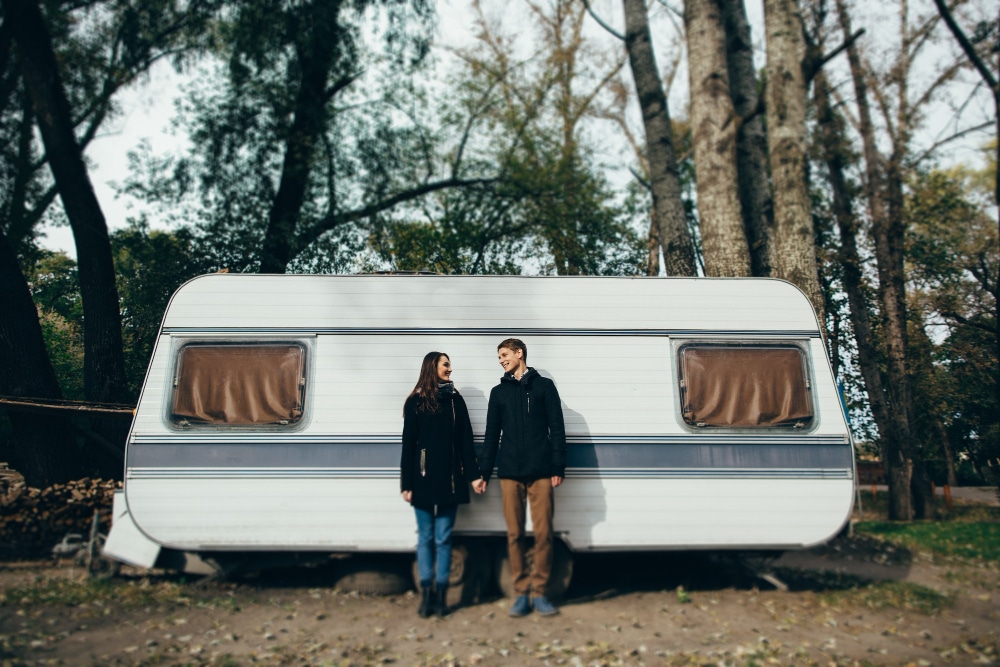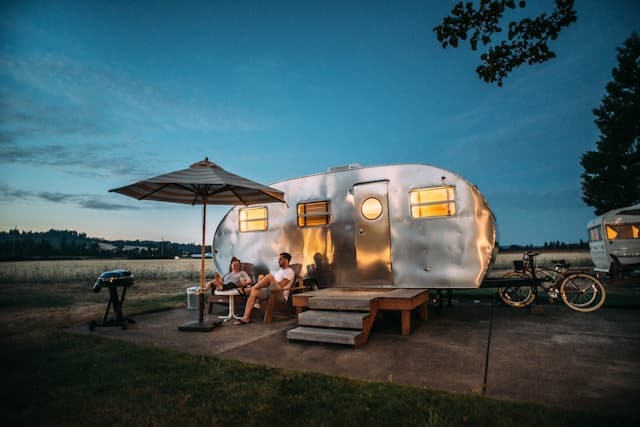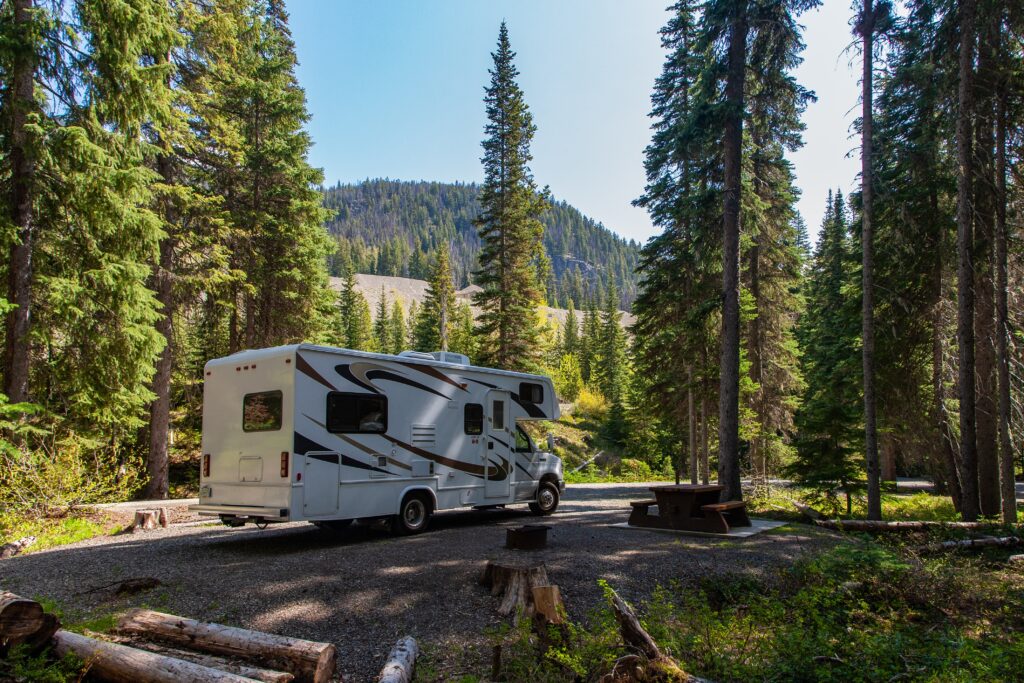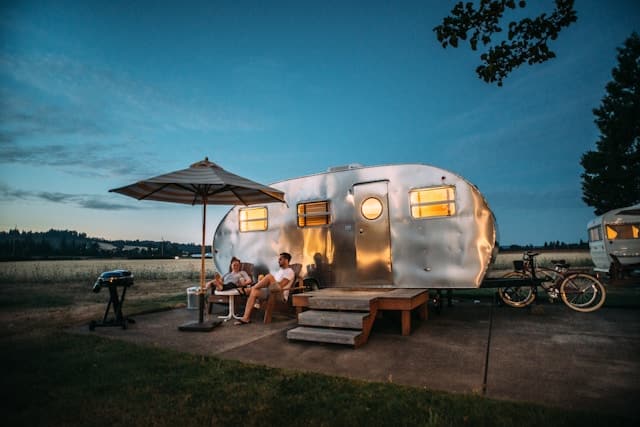Travel trailers give you the freedom to move without giving up comfort. They turn highways into home and let you chase better weather, quieter nights, or longer weekends with ease.
But choosing one can be overwhelming. There are dozens of options, each claiming to be the best. The key is knowing what actually matters when you’re on the road. Floorplans, build quality, weight, and tow setup all shape your experience. If you miss something early, it can affect every trip. This guide breaks down the essentials so you can focus on what fits your life, your vehicle, and your plans.
What to Look for in Travel Trailers

Match the Trailer to Your Tow Vehicle
Before you start comparing layouts or features, take a look at your vehicle’s towing capacity. Travel trailers vary widely in weight, and pulling something too heavy can cause serious strain. It impacts fuel efficiency, handling, and safety, all of which are essential for supporting your nomadic lifestyle. Some roads won’t even be an option if your setup is too large.
Start by checking two numbers: the trailer’s dry weight and its gross vehicle weight rating. Then compare those to your tow vehicle’s specs. Don’t forget to include everything you’ll bring: water, supplies, bikes, and gear add up fast.
If you plan to travel with extra equipment like ATVs or motorcycles, you might need a second trailer just for hauling. In these cases, it’s better to keep the living space light and tow the gear separately. BrechbillTrailers.com carries several tilt-deck styles that make loading and unloading smoother. They’re a smart option for travelers who basecamp with a trailer and explore the area using smaller vehicles.
Choose a Layout That Matches Your Lifestyle
Travel trailers come in all shapes inside. Some are open and minimal. Others pack in features like bunk beds, dining booths, and full-size kitchens. The right layout depends on how you travel and what comforts you care about most.
If you work on the road, look for a space that can double as a desk. If you travel with kids, sleeping space and storage take priority. Couples might want a fixed bed and a bit of privacy. Pay attention to how the space flows. A layout that looks great online might feel cramped in person.
Walkthroughs help, but so does thinking through your day. Where will you cook? Where will the gear go? Will you be stepping over each other to reach the bathroom? These small choices make a big difference once you’re living in your trailer for more than a weekend.
Pay Attention to Build Quality and Materials
A trailer might look polished on the outside, but what matters is how it holds up over time. Road travel puts constant stress on every part of the structure. Weak frames, poor insulation, or cheap fixtures can lead to problems quickly, especially during long drives or bad weather.
Look for a solid chassis, clean welds, and durable siding. Aluminum frames are lighter and resist rust. Steel frames are stronger but heavier. Check the seals around windows and doors. These are common spots for water leaks and heat loss.
Inside, the materials should feel sturdy. Cabinets should stay closed during travel. Drawers should open without sticking. Floors should handle wear from boots, pets, and gear. If the interior feels fragile, it probably won’t hold up. A well-built trailer travels quieter, stays more energy-efficient, and saves you time and money on repairs over the long run.
Consider the Essentials for Off-Grid Travel


Many travelers want the option to camp away from crowded parks and busy sites. That means the trailer needs to support life off-grid. A few key features make this easier and safer, even for longer stays.
Look for solar panels, large battery banks, and inverters if you want to power devices without plugging in. A generator helps, especially in cloudy weather. Water tanks matter just as much. The larger the fresh, grey, and black tanks, the longer you can stay put without needing a hookup or dump station.
Think about heating, cooling, and ventilation. A trailer that holds temperature well saves energy and keeps you comfortable in different climates. Fans and windows placed for airflow make a big difference. These upgrades might seem small, but they let you stay where you want, on your schedule, without being tied to campgrounds or power outlets.
Know the Weight Ratings and Storage Limits
Travel trailers aren’t just about floor plans and features. Weight matters, and so does how it’s distributed. Every trailer has limits, and pushing them can lead to poor handling, brake strain, or tire blowouts on the road.
Start with the dry weight, which is the trailer’s weight without gear or fluids. Then check the gross vehicle weight rating. That’s the maximum it can safely carry. The difference between those two numbers is your payload. Everything counts toward it: water, propane, food, tools, and personal items.
Storage matters too. You want space that’s easy to access, stays organized, and won’t throw off the trailer’s balance. Weight should be centered and evenly spread. Too much in the rear or on one side makes towing unstable. A good design makes loading simple and keeps the ride smooth, even when the trailer is full.
Look for Safety Features


Safety often gets overlooked in the excitement of picking a trailer, but it should be high on your list. The right features protect you on the road and give peace of mind when you’re camped far from help.
Start with brakes. Electric trailer brakes are standard on most models, but check for a breakaway switch. This small device stops the trailer if it separates from your vehicle. Tire pressure monitoring systems are another smart upgrade. They alert you to slow leaks before they become dangerous.
Inside the trailer, look for smoke detectors, propane leak sensors, and carbon monoxide alarms. Fire extinguishers should be included and easy to reach. Emergency exits should open quickly and without tools. These aren’t exciting features, but they make a big difference in how safe and relaxed you feel: whether you’re parked in a forest or driving down a mountain pass.
Wrapping Up
A travel trailer should work hard without getting in the way. It should tow smoothly, store what you need, and hold up when the road turns rough. Pick the one that matches how you move. Then go. The rest comes with you.
Get inspired:
